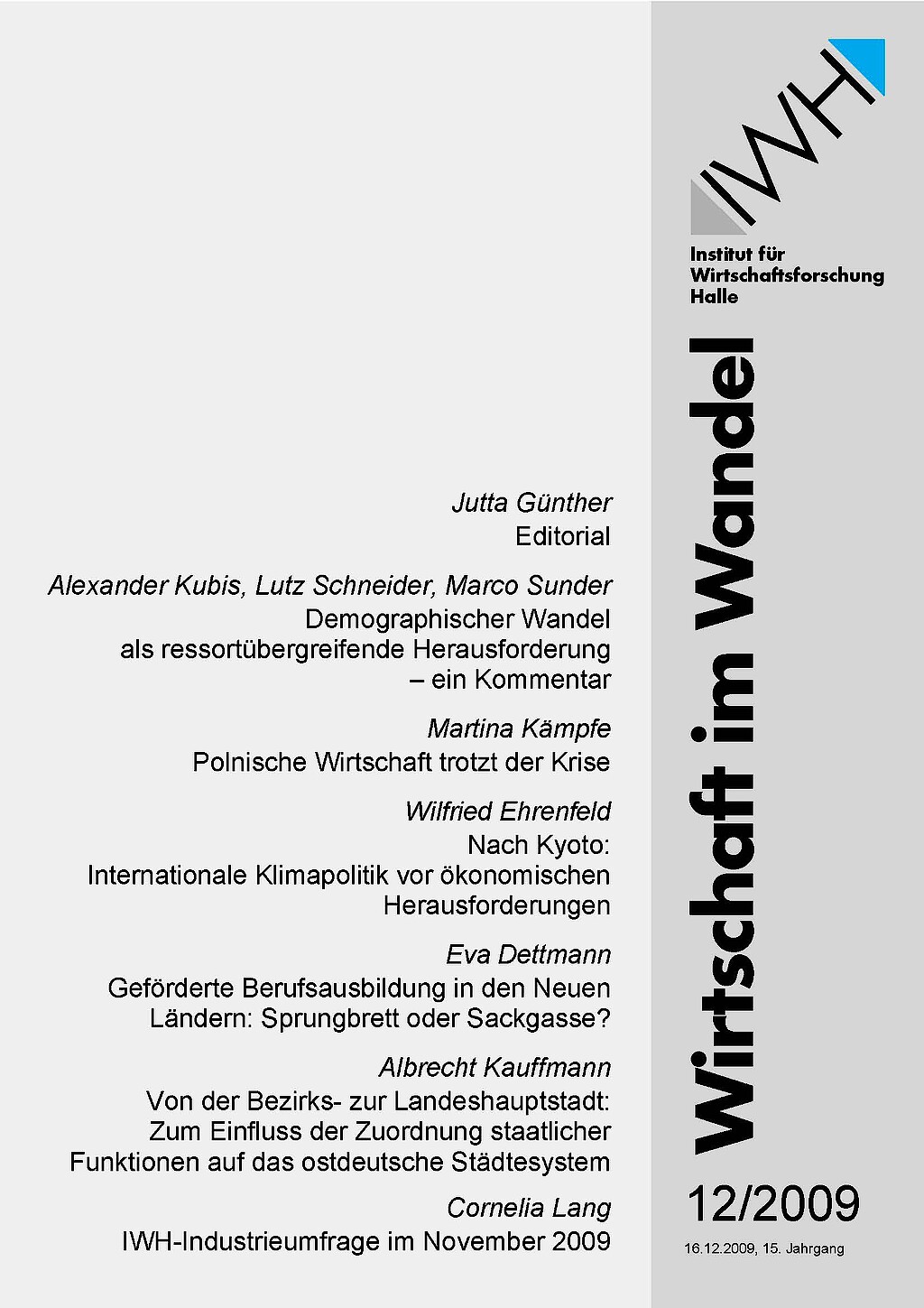
International Climate Policy after Kyoto – Economic Challenges Ahead
Die Evidenz nimmt zu, dass der Anstieg der Treibhausgasemissionen seit Beginn des 20. Jahrhunderts die globale Durchschnittstemperatur zunehmen lässt. Eine Begrenzung des Temperaturanstiegs auf 2°C soll zumindest die schwerwiegendsten Folgen der globalen Erwärmung vermeiden. Dazu müssten die Treibhausgasemissionen bis spätestens zum Jahr 2015 ihren Maximalwert erreicht haben und von da an bis zum Jahr 2050 weltweit drastisch reduziert werden. Aus ökonomischer Sicht ergeben sich eine Reihe bedeutsamer Fragenkomplexe: Wie ist zunächst die Ausgangslage in wirtschaftlichen Kategorien zu beschreiben? Hierzu sind vorab die Emissionen nach Regionen und Sektoren aufzuzeigen, um daraufhin die Anpassungsmöglichkeiten beschreiben zu können. Welche Kosten und welche Erträge sind mit einer Klimapolitik verbunden? So liegt die Bandbreite des geschätzten Schadens im Fall eines ungebremsten Klimawandels zwischen jährlich 5% und 20% des weltweiten Bruttoinlandsprodukts (BIP); dem stehen Schätzungen von rund 1% des globalen BIP gegenüber, die zur Stabilisierung der Konzentration von Treibhausgasen in der Atmosphäre aufzuwenden wären. Wie sind die globalen Ziele regional und sektoral zu verteilen und welche ökonomischen Instrumente sind hierfür zu empfehlen? Offensichtlich werden handelbare Emissionslizenzen präferiert, womit Ausgangszuteilungen und die Art der Zuteilung einerseits, die Handelbarkeit andererseits eine herausragende Rolle spielen. Welche politökonomischen Konflikte ergeben sich und welche Empfehlungen können Ökonomen geben, um diese zielorientiert zu lösen? Was ist abschließend wirtschaftspolitisch zu empfehlen, um insbesondere im Sinne des Abschlusses eines internationalen Klimaabkommens glaubhaft zu bleiben?




